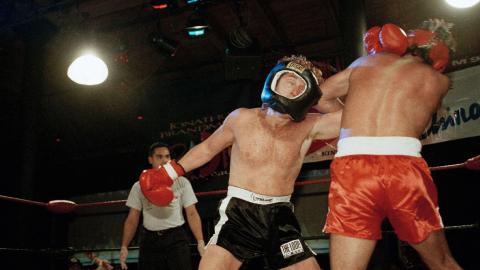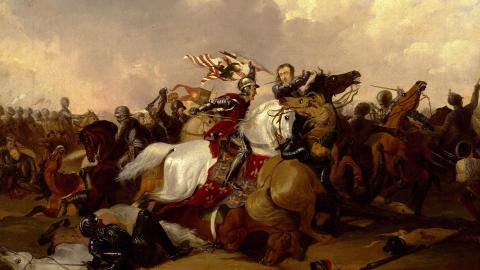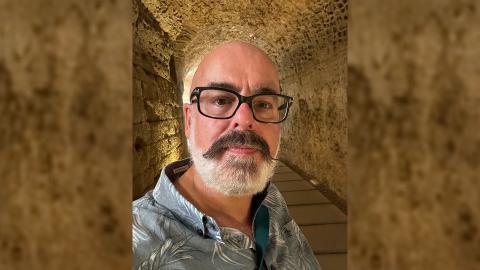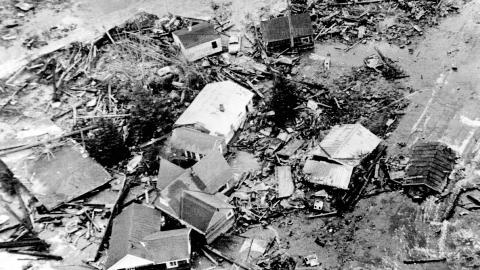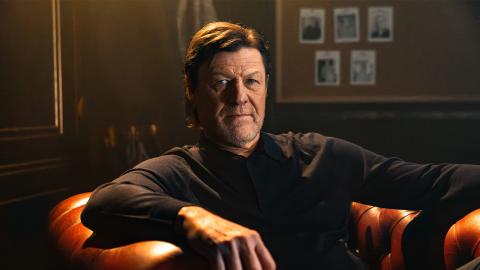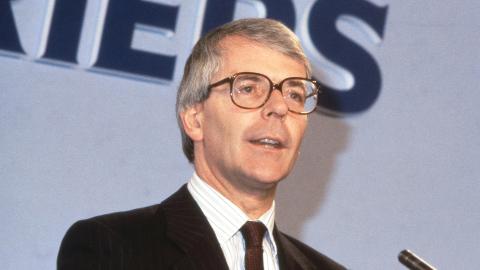
How the Kursk Submarine Disaster changed Putin’s rule
Learn how the Kursk Submarine Disaster of 2000 transformed not just the military history of Russia, but also its democracy.
Image: Vladimir Putin | PAP / Alamy Stock Photo
Kursk: 10 Days That Shaped Putin is a dramatic and forensic examination of events that took place in August 2000, after an explosion onboard the Kursk submarine trapped a group of survivors at the bottom of the Barents Sea. The show starts Tuesday, 25th February on Sky HISTORY.
On 12th August 2000, during peacetime, the Russian Navy was carrying out training exercises in the Barents Sea. Soon after 11am, one of the submarines, the Kursk, exploded. All 118 crew members lost their lives.
Vladimir Putin’s first presidency had only just begun in May of that year, and it was his government’s first real test in terms of crisis management.
Here we explore how Putin reacted in the aftermath of the disaster, and ways in which this tragic event changed the course of his rule.
The Kursk Submarine Disaster
Caused by a chemical leak, faulty equipment, human negligence, and poor safety procedures, torpedoes on board exploded with such power that they were registered by earthquake sensors across Europe and Alaska. All crew members died either as a result of the explosion, or through suffocation due to delayed rescue efforts.
Most historians agree that the Kursk Disaster was a tragic event that claimed 118 lives, severely damaged the reputation of Russia’s armed forces, and placed Putin in a PR nightmare.
Some also believe that it was Putin’s reaction to this event that triggered the decline of democracy in modern Russia.
The immediate reaction
The Kursk was one of the Russian Navy’s most prized weapons. When the apparently unsinkable vessel sank, Putin was relaxing on holiday in Sochi, a Russian beach resort on the Black Sea. The blasts were detected as far away as Alaska, but for two days Russia did not announce that anything had happened, and Putin continued his holiday.
Russia also refused all offers of aid from other countries as the government insisted that they would manage the rescue mission themselves.
The families of the missing crew members were given little to no information about what was happening. It was not until five days of failed rescue attempts had passed that Putin accepted help from foreign countries. When Norwegian divers reached the vessel, they found all 118 crew members had died.
Subsequent investigations found that while most of the crew had died in the explosions, a group of 23 men had survived and were waiting to be rescued in the ninth compartment of the ship (which was where the rescue hatch was located). These men died when the rescuers took too long to come, and they ran out of oxygen.
The long-term impact
The Russian government produced a 133-page report on the Kursk Disaster, but the public were only given access to a 4-page summary.
In the hours and days immediately after the sinking, misinformation and secrecy followed. Several senior officers in the Russian Navy made statements that the crew were still alive and that they were in contact. This was later exposed to be untrue – no contact was ever made to or from the submarine.
Some government officials voiced suspicions to the media that the explosions had been caused by a collision with spy submarines from the US rather than any fault with their prized submarine.
A library of faults and errors was uncovered during the subsequent investigations. Torpedoes were old and unstable, equipment and machinery on the submarine were poorly maintained, safety equipment was not accessible, and communications systems were faulty.
Despite this, no one was ever held criminally responsible for the disaster. While some senior officers were moved from military posts, they were placed in influential positions in the government.
Changes to Russian media
On 21st August the government announced to the public that all 118 crew members were dead. Many of the crew members’ relatives heard this news via the media. Many Russians believed Putin had managed the rescue poorly and that he appeared not to care about the crew members and their families.
The next day, Putin met with the families of the crew members personally, many of whom cried, shouted and screamed at him. The national media, much of which was controlled by oligarchs at the time, covered the event and Putin’s management of it in great detail.
In September 2000, a special documentary on the tragedy aired on Russia's national ORT television channel which was owned by Boris Berezovsky. The programme was highly critical of the Russian government, ending with a scathing conclusion:
'The story of the Kursk is not finished. We have only raised the very first questions and conclusions. The main conclusion is that the government does not respect any of us - and so it is lying. And the main thing is that the government treats us this way only because we allow it to.'
It was comments like this and many others that prompted Putin to launch an attack on the Russian media, accusing the two most influential tycoons of exploiting the disaster for financial and political gains. He blamed the media for spreading misinformation about the rescue, deflecting blame from himself and military officers.
While meetings with the families of the lost crew members were private, some journalists managed to get close to these discussions. They reported that when asked why the families had been given so much conflicting information, Putin blamed the media:
'They are liars. The television has people who have been destroying the state for 10 years. They have been thieving money and buying up absolutely everything. Now they're trying to discredit the country so that the army gets even worse.'
He then went on to say he would be attempting to establish a more "honest and objective" media industry in Russia. In an interview on state television soon afterwards, Putin said of the two most powerful media tycoons that they were 'unscrupulously trying to exploit this misfortune...to gain political capital'.
Today, Russian media is almost entirely under state control.










